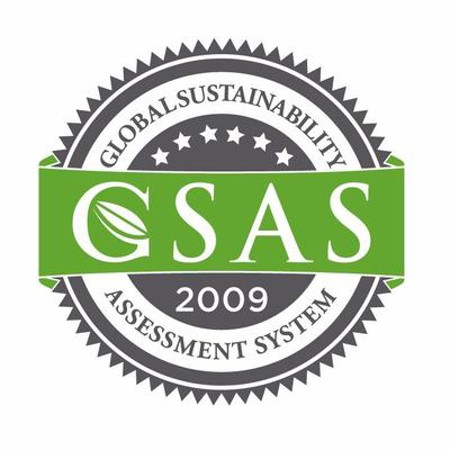GSAS

The Global Sustainability Assessment System (GSAS) is a performance-based sustainable building rating system developed for the creation of a sustainable built environment that not only minimizes its ecological impact but also preserves the values, traditions and identity of the region.
Originally called QSAS, the Gulf Organization for Research and Development (GORD) developed the system to provide the systematic assessment customized to the unique conditions and requirements of the State of Qatar. Since then, the rating schemes have been developed for the transition from local to a global scale.
The primary objective of GSAS is to create a sustainable, built environment that minimises ecological impact while addressing specific regional needs and those of the surrounding environment.
GSAS criteria include the measurement of energy and water consumption and indoor environmental performance of buildings. The application of GSAS criteria to a building's design and construction contributes to the improvement of the overall quality, maintenance requirements and life span of the building.
This provides a long term benefit to building owners as the real estate asset is cost effective to maintain, performs better for tenants/occupants and is more competitive in the real estate market than a building that is not GSAS certified.
GSAS has been the foundation of standards and specification for the Lusail City development and is applicable to religious, residential, commercial, leisure and education buildings.
The GSAS Certification Review Board is responsible for administering GSAS certification therefore project designers must be registered with GORD in order to receive the certification.
SAS International are an affiliate member of GSAS. SAS International’s products will contribute toward credits for areas such as acoustics, VOCs, recycled materials and design for disassembly.